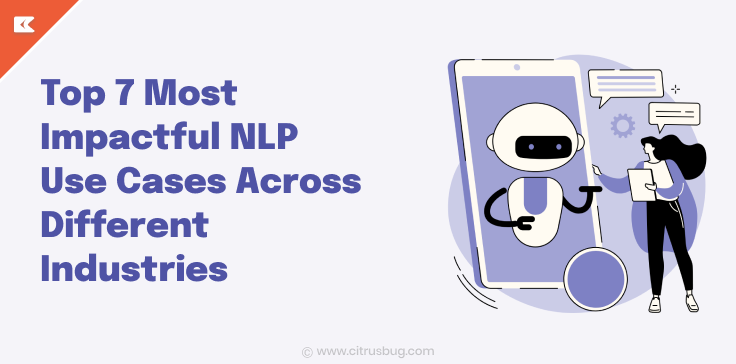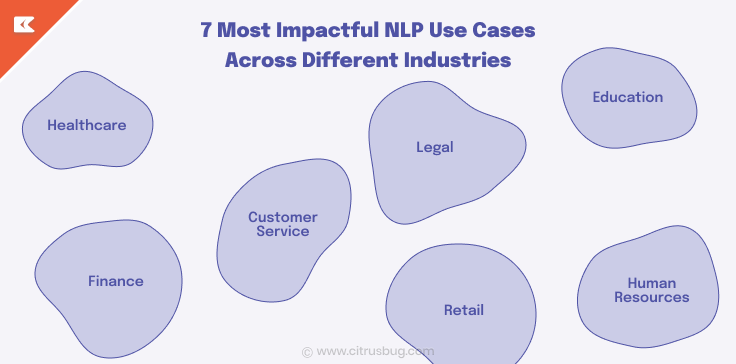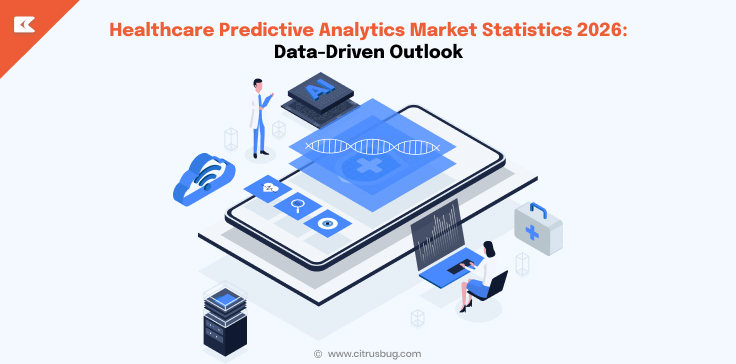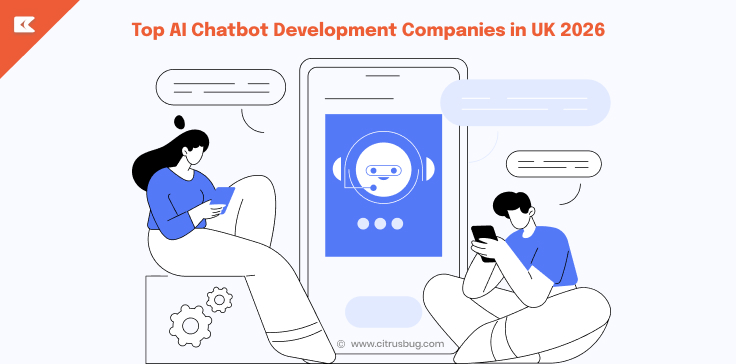Top 7 Most Impactful NLP Use Cases Across Different Industries
- September 18, 2024
-
4031 Views
- by Ishan Vyas

Among the most revolutionary technologies, NLP has emerged. It is a technology that really allows machines to interpret human speech and respond accordingly. NLP has seen industrial applications that range from healthcare to retail in innovation, efficiency, and drive innovation. This blog will present seven impactful NLP use cases from across different sectors – giving an idea of its revolutionising impact on business operations.
The NLP market is expected to be over 14 times bigger in the year 2025 than in 2017. It is estimated to grow from roughly 3 billion USD in 2017 to more than 43 billion in 2025. Natural Language Processing or NLP is a subfield of artificial intelligence or AI that makes computers understand and interpret human language and interact and manipulate it accordingly. This is the scope of what NLP strives to bridge, by harnessing areas as wide as computer science and computational linguistics to this end.
What is natural language processing(NLP)?
NLP is a segment of artificial intelligence that involves computational methods for the understanding, interpretation, and generation of human languages. The tasks handled by NLP include the analysis of texts, speech recognition, translation, sentiment analysis, and mood detection; hence, NLP plays a key role in developing chatbots, virtual assistants, and language translators.
7 Most Impactful NLP Use Cases Across Different Industries
1. Healthcare: Enhancing Patient Care with NLP-Powered Solutions
Healthcare facilities have taken to using NLP in healthcare to enhance patient care, organize records and increase efficiency. One key application of this technique in medicine is recording what doctors and patients communicate automatically with one another; this enables doctors to spend more time caring for their patients instead of doing paperwork.
NLP algorithms can access unstructured medical data such as clinical notes and interpret it to identify patterns and predict probable health risks. Sentiment analysis may help detect early warning signs for mental disorders; when combined with NLP’s ability to process vast quantities of health-related data, NLP helps diagnose and manage diseases with ease. A real-life example is IBM Watson Health, which analyzes medical data to assist doctors in treatment decisions. The Mayo Clinic also uses NLP to quickly extract key information from clinical notes, improving patient care.
Growth in the Global Healthcare and Life Sciences NLP Market Market is expected to grow further; estimates reveal that the market size of healthcare and life sciences NLP reached $2.2 billion in 2022 and will grow to $7.2 billion by 2027. Thus, with the passage of time, the requirement for customized NLP solutions would increase, where, in this case, NLP, by helping analyze a large portion of health-related data, will enable healthcare institutions not only to increase overall operational efficiency but also to further improve the quality of patient care including through streamlined mental health billing services that support specialized care providers.
(Source: https://itrexgroup.com/)
Key Benefits:
- The immediate transcription of medical notes.
- Early detection of health risks and mental health conditions.
- Smoothened management of patient records.
2. Finance: Automating Document Processing and Fraud Detection
NLP has also made significant strides in the financial industry. Through NLP algorithms, complex documents can be processed quickly, providing valuable insights that help financial institutions automate tasks like processing loan applications. It also aids in generating financial reports and complying with regulations more efficiently and accurately than before.
Furthermore, natural language processing (NLP) technology can facilitate the detection of fraud by examining the language utilized in transactions, emails, or customer service interactions. NLP systems can recognize suspicious activities by identifying unusual patterns in these interactions and flagging them for further investigation. This not only speeds up the process but also improves accuracy and enhances security while accelerating financial service delivery. Additionally, PayPal employs NLP algorithms to detect fraudulent transactions by analysing patterns in user behaviour and transaction data, enhancing fraud prevention efforts.
The global NLP in finance market was valued at USD 5.4 billion in 2023 and is expected to grow at a CAGR of 27.50% during the forecast period. Increasing adoption of AI-based anti-fraud technologies in the finance industry is the driving factor for the growth of the market. In 2021, 10% of financial service companies claimed to utilize AI-based anti-fraud technologies, according to the NVIDIA survey.
Key Benefits:
- Automation of financial document processing.
- Improved fraud detection capabilities.
- Enhanced regulatory compliance.
3. Customer Service: Enhancing User Experience with Chatbots
One of the key applications of NLP technology is customer service, particularly given the proliferation of virtual assistants using this tech such as chatbots or bots equipped with it. Such bots can quickly address customer inquiries while offering recommendations or solving issues instantly – all reminiscent of human interactions. For instance, American Express employs NLP to analyze customer queries in real-time and respond instantly with personalized responses, improving issue resolution while elevating the overall customer experience.
These systems use natural language processing (NLP) technology to more precisely interpret customer inquiries by understanding them better and responding more precisely, by understanding and responding more specifically. NLP interprets customer intent behind language usage. Businesses implementing NLP into customer service often witness improvements in response times, customer satisfaction scores, and overall operational efficiencies. Not to mention, these chatbots can run 24/7 to offer consistent service across time zones.
Key Benefits:
- Instant responses to customer inquiries.
- Human-like interaction for an enhanced user experience.
- 24/7 customer support.
4. Legal: Streamlining Contract Analysis and Case Research
Legal industry analysis can often be time and resource-intensive. NLP use cases have revolutionized this process by offering faster and more accurate document analysis capabilities through text classification and entity recognition technology. NLP systems can quickly identify clauses, obligations, and legal precedents from vast volumes of legal documents.
Law firms are using NLP for case research, quickly discovering relevant case law and summarizing arguments to reduce time spent doing legal research. This allows lawyers to focus on strategic decision-making and client advisory services rather than legal research tasks.LawGeex, an AI-powered legal platform, uses NLP to automatically review and approve contracts, reducing the time lawyers spend on routine tasks and improving accuracy in legal document processing.
Key Benefits:
- Faster contract and document analysis.
- Automated legal research.
- Improved accuracy in case analysis.
5. Retail: Personalizing Shopping Experiences
Retail is one of the prime fields where NLP can create personalized customer experiences by analyzing customer reviews, product descriptions, and browsing behaviour. NLP systems then deliver tailored product suggestions tailored to individual preferences to increase sales. This ultimately boosts profits for retailers while improving customer satisfaction. Walmart uses NLP-powered chatbots for instant customer assistance, while Amazon leverages NLP for personalized product recommendations.
Key Benefits:
- Personalized product recommendations.
- Improved customer satisfaction and sales.
- Real-time sentiment analysis for brand reputation management.
6. Education: Automating Grading and Providing Personalized Learning
Education institutions are rapidly adopting NLP to enhance both teaching and learning experiences, particularly through automated grading applications that use top AI algorithms to grade essays, assignments, and exams with high precision. This relieves teachers of their workload while freeing them up for more creative teaching techniques. Automated grading systems from NLP are particularly notable applications that leverage this technology. One particularly impactful use case is automated essay grading using algorithms that accurately grade essays, assignments, and exams with less error rate. As edtech trends evolve, these solutions will continue to refine accuracy, leaving teachers more time and flexibility when teaching creatively than ever.
The advanced technology of NLP also helps provide personalized learning experiences. By analyzing students’ performance and learning styles, NLP-powered tools can suggest tailored materials, quizzes, and exercises tailored for them based on NLP analysis—helping students progress at their own pace with instantaneous feedback loops. Duolingo uses NLP to provide personalized language learning by analyzing user responses and adjusting lessons in real time, enhancing the learning experience.
Forbes predicts that by 2024, artificial intelligence will be a crucial component of 47% of all digital learning tools, demonstrating the increasing importance of NLP in influencing the direction of education and learning. Furthermore, the NLP market was estimated to be worth $20.80 billion in 2021 and is expected to grow at an exponential rate to reach $161.81 billion by 2029. This quick ascent is evidence of the significant influence NLP will have on education and other fields.
Key Benefits:
- Automated grading of assignments and exams.
- Personalized learning experiences.
- Instant feedback for students.
7. Human Resources: Enhancing Recruitment and Employee Engagement
Platforms like a kudos platform can enhance employee engagement by providing automated recognition systems, complementing AI-driven recruitment efforts like talent lifecycle to create a more holistic HR strategy NLP use cases like resume screening algorithms can sort through thousands of resumes quickly to find those best qualified for specific jobs based on job descriptions or qualifications, speeding up hiring procedures while selecting only relevant applicants for interviews.
NLP can also be utilized to boost employee engagement by analyzing feedback and survey responses. Sentiment analysis is being applied by the HR teams to understand the sentiments of employees, areas of concerns, and solutions for enhancement of satisfaction at the workplace and building retention scores. For example, Unilever uses NLP for screening employment candidates by matching resumes and video interviews thereby reducing the time spent in the hiring process and speeding up the identification of top-worthy candidates.
Key Benefits:
- Streamlined recruitment process.
- Improved employee engagement and satisfaction.
- Enhanced workplace retention strategies.
Conclusion
Overall, NLP use cases from across industries showcase how transformative this technology can be. From automating customer service processes and improving healthcare diagnostics to customizing learning experiences for audiences – NLP is revolutionizing how businesses work and engage their target markets.
Our Custom NLP services can assist your company in taking advantage of revolutionary innovations to stay at the cutting edge. Whether it’s improving efficiency, improving customer experiences or unlocking fresh insight; NLP can offer the tools that make that possible – now is the time to explore how NLP could revolutionize your industry!





 SaaS Development
SaaS Development Web Application Development
Web Application Development Mobile Application Development
Mobile Application Development Custom Software Development
Custom Software Development Cloud Development
Cloud Development DevOps Development
DevOps Development MVP Development
MVP Development Digital Product Development
Digital Product Development Hire Chatbot Developers
Hire Chatbot Developers Hire Python Developers
Hire Python Developers Hire Django Developers
Hire Django Developers Hire ReactJS Developers
Hire ReactJS Developers Hire AngularJS Developers
Hire AngularJS Developers Hire VueJS Developers
Hire VueJS Developers Hire Full Stack Developers
Hire Full Stack Developers Hire Back End Developers
Hire Back End Developers Hire Front End Developers
Hire Front End Developers AI Healthcare Software Development & Consulting
AI Healthcare Software Development & Consulting Healthcare App Development
Healthcare App Development EHR Software Development
EHR Software Development Healthcare AI Chatbot Development
Healthcare AI Chatbot Development Telemedicine App Development Company
Telemedicine App Development Company Medical Billing Software Development
Medical Billing Software Development Fitness App Development
Fitness App Development RPM Software Development
RPM Software Development Medicine Delivery App Development
Medicine Delivery App Development Medical Device Software Development
Medical Device Software Development Patient Engagement Software Solutions
Patient Engagement Software Solutions Mental Health App Development
Mental Health App Development Healthcare IT Consulting
Healthcare IT Consulting Healthcare CRM Software Development
Healthcare CRM Software Development Healthcare IT Managed Services
Healthcare IT Managed Services Healthcare Software Testing services
Healthcare Software Testing services Medical Practice Management Software
Medical Practice Management Software Outsourcing Healthcare IT Services
Outsourcing Healthcare IT Services IoT Solutions for Healthcare
IoT Solutions for Healthcare Medical Image Analysis Software Development Services
Medical Image Analysis Software Development Services Lending Software Development Services
Lending Software Development Services Payment Gateway Software Development
Payment Gateway Software Development Accounting Software Development
Accounting Software Development AI-Driven Banking App Development
AI-Driven Banking App Development Insurance Software Development
Insurance Software Development Finance Software Development
Finance Software Development Loan Management Software Development
Loan Management Software Development Decentralized Finance Development Services
Decentralized Finance Development Services eWallet App Development
eWallet App Development Payment App Development
Payment App Development Money Transfer App Development
Money Transfer App Development Mortgage Software Development
Mortgage Software Development Insurance Fraud Detection Software Development
Insurance Fraud Detection Software Development Wealth Management Software Development
Wealth Management Software Development Cryptocurrency Exchange Platform Development
Cryptocurrency Exchange Platform Development Neobank App Development
Neobank App Development Stock Trading App Development
Stock Trading App Development AML software Development
AML software Development Web3 Wallet Development
Web3 Wallet Development Robo-Advisor App Development
Robo-Advisor App Development Supply Chain Management Software Development
Supply Chain Management Software Development Fleet Management Software Development
Fleet Management Software Development Warehouse Management Software Development
Warehouse Management Software Development LMS Development
LMS Development Education App Development
Education App Development Inventory Management Software Development
Inventory Management Software Development Property Management Software Development
Property Management Software Development Real Estate CRM Software Development
Real Estate CRM Software Development Real Estate Document Management Software
Real Estate Document Management Software Construction App Development
Construction App Development Construction ERP Software Development
Construction ERP Software Development







